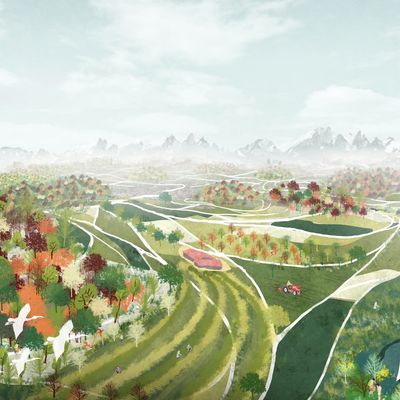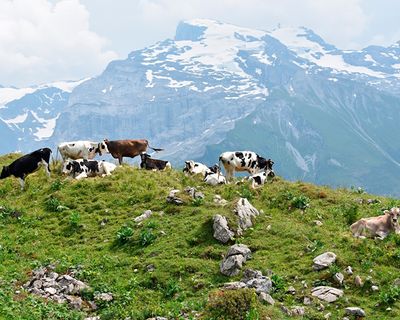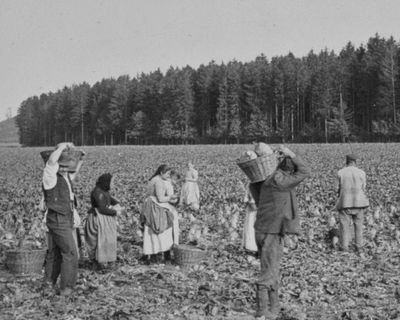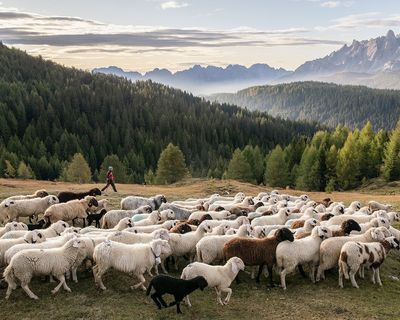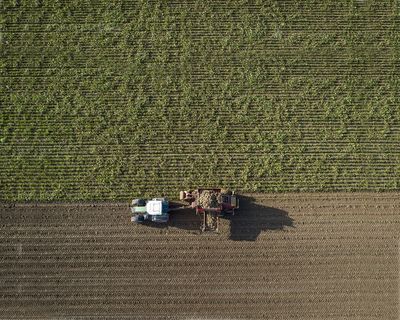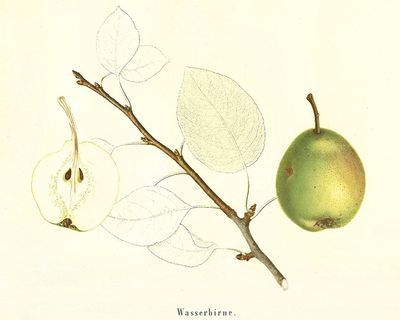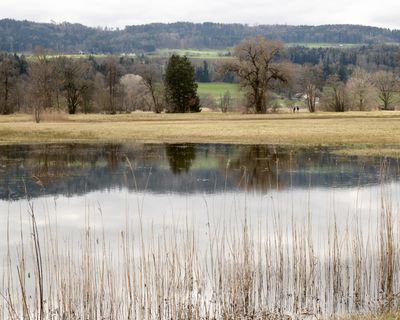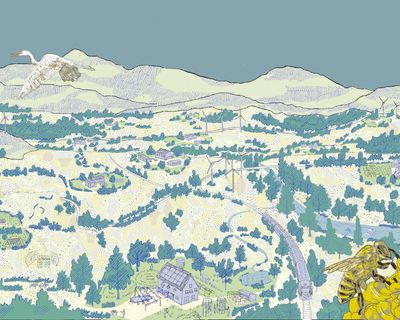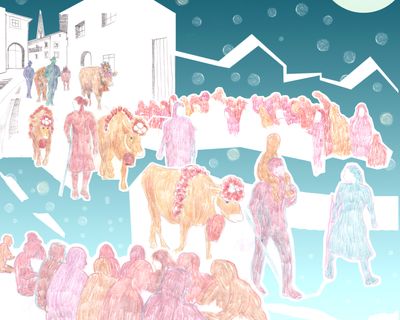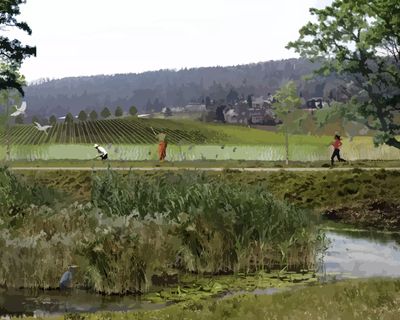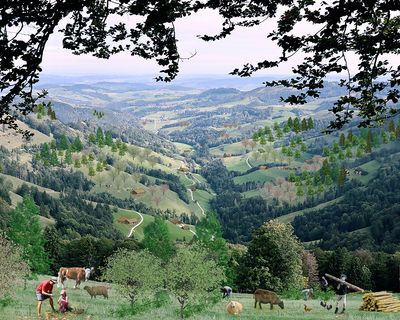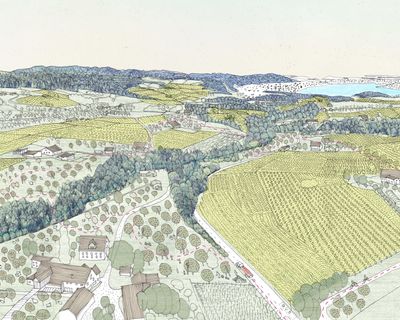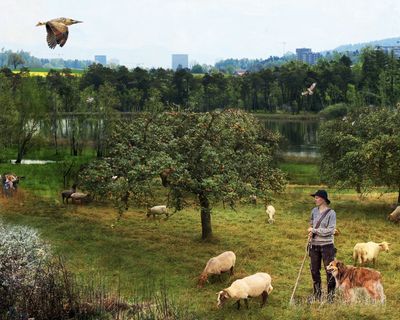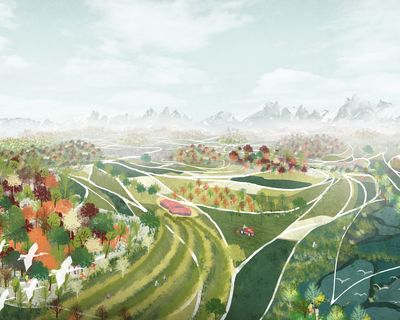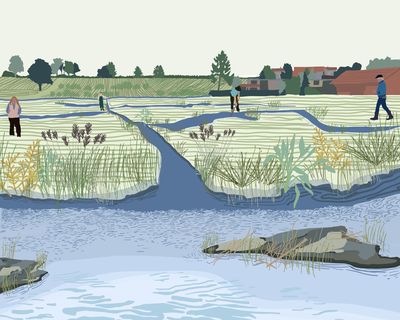Agroecological RepairTransformative Practices for the Zurich Territory
In the face of unpredictable climatic changes, fluctuating water reserves and pressure on agricultural land to produce not only food, but also biofuel, solar energy, leisure landscapes and further demands of expanding urbanisation, agricultural practices across the majority of the Global North still predominantly consist of pouring chemicals into the soil, polluting aquifers, exploiting imported seasonal labour and relying on industrially-produced seed, feed and food deliveries. Switzerland is no exception.
The critical role of agriculture within the territorial project has hardly been examined within the urban debate. However, as once rural landscapes are engulfed and surrounded by extended urban systems, and as higher biodiversity rates are recorded in cities than in the countryside, the metabolical links across these ecosystems and the need for a paradigm shift in design thinking within both local and regional contexts, become not only clear but also urgent.
Our hypothesis is that agricultural land and practices can be interpreted through a number of distinct socio-spatial landscape typologies incorporating both the built and the unbuilt space. These typologies are historically and geographically specific–for example drained valley floors or pre-alpine pastures–therefore design efforts of agroecological repair must be situated, and respond to these unique contexts.
By diving deep into these specific landscapes of agricultural production, the studio aspires to raise questions unlocking the transformative potential of reparative thinking and practices in urban and territorial design.
Can we rethink social relations linked to the land and define space for solidarity practices in agriculture? Can we redesign the cultural laws leading to commodification of landscape? Can we undo previous industrial practices and models of land drainage and other complex processes?
